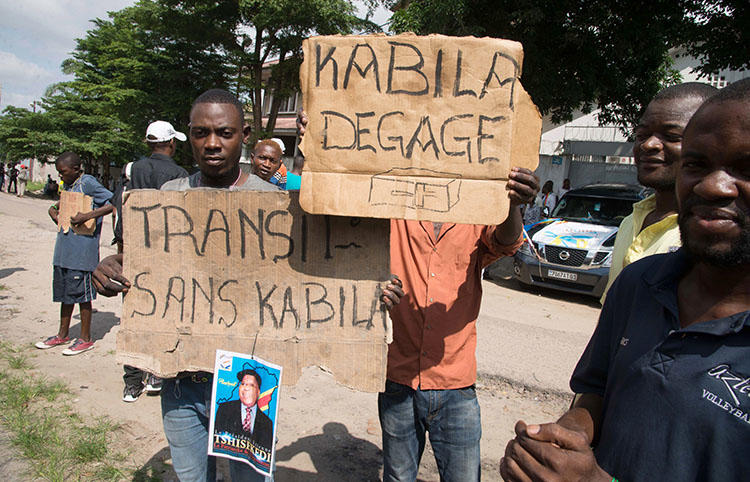Congolese security forces on November 30, 2017, detained at least six local journalists and confiscated their equipment as they tried to cover countrywide protests over President Joseph Kabila’s refusal to stand down when his second five-year term in office expired in 2016 and his refusal to hold elections, according to a local press freedom group Observatoire de la Liberté de la Presse en Afrique (Observatory of Press Freedom in Africa or OLPA.)
All of the journalists were released the same day without charge, but as of March 22, 2018, police were still holding some of the confiscated equipment, some of the journalists told CPJ.
Security forces in the eastern city of Beni, in South Kivu province, briefly detained Tresor Malu, a reporter with the university radio station de la Voix de l’ Université Officielle de Semuliki (VUOS), and Delphin Mupanda, a reporter with the community broadcaster Radio Télévision Rwanzururu (RTR), according to Malu and OLPA.
Malu told CPJ that police briefly seized the journalists’ audio recorders, but that the equipment was returned when police released the two reporters a few hours later.
In the eastern city of Bukavu, in North Kivu province, security forces briefly detained Emmanuel Elameji wa Kabedi, a journalist with the U.N.-backed Radio Okapi, while he was covering a pro-democracy protest, the journalist told CPJ. Elameji wa Kabedi said that police seized his two phones, an audio recorder, and US$140.
Elameji wa Kabedi said that when he was released a few hours later, authorities returned one of his phones and recorder, which was damaged during the arrest. He said that the security forces did not return the other phone and his cash.
In Tshikapa, a city in Kasai province, security forces detained Pierre Tshiabu and Texas Tshipamba from the community radio station Notre Chaine Radio (NCR) while they were covering the protest, Tshiabu told CPJ.
CPJ is aware of at least one other case of security forces stopping a journalist from filming a protest in the capital, Kinshasa. The journalist asked that details of the incident, including their name, be withheld for fear of reprisal.
When asked for comment about the incidents, Colonel Pierre-Rombaut Mwanamputu, a spokesperson for the national police, told CPJ it was difficult for security forces to make the distinction between journalists and protesters.
“Everyone can wear a press jacket. It is not a sign that someone is a journalist,” Mwanamputu said, referring to jackets with the word “Press” written on the front and back that some members of the media wear.
